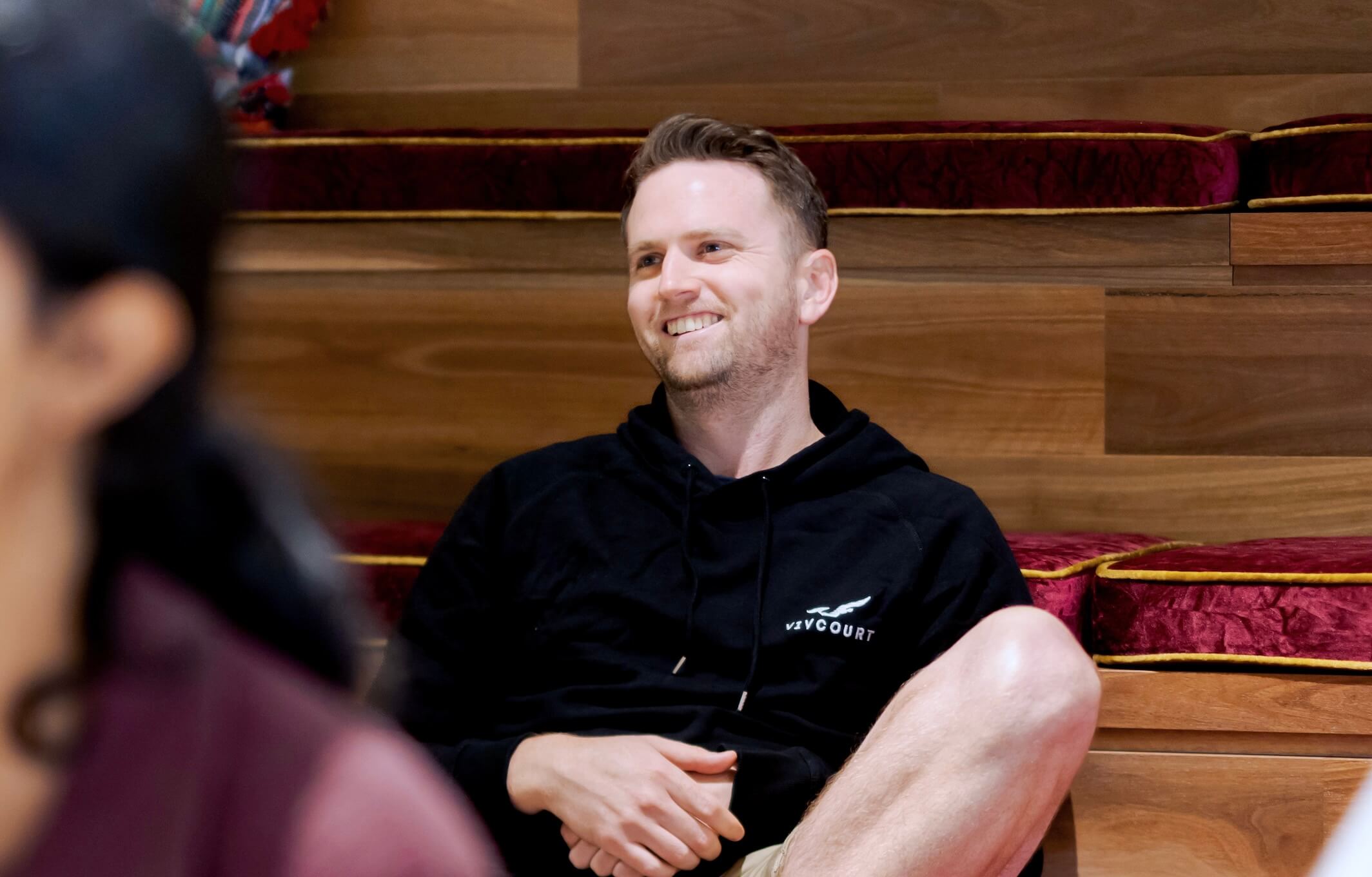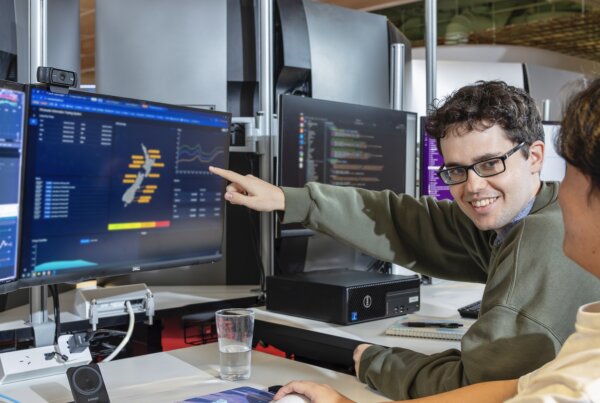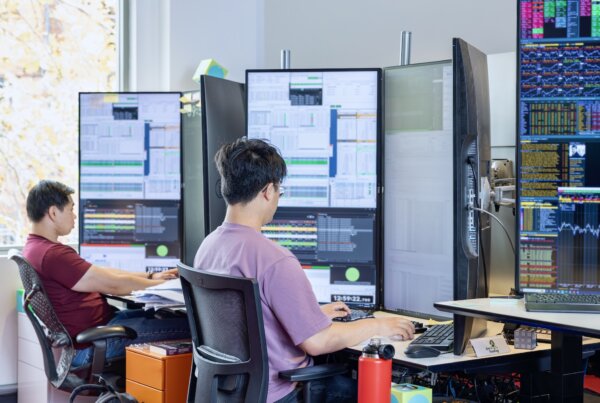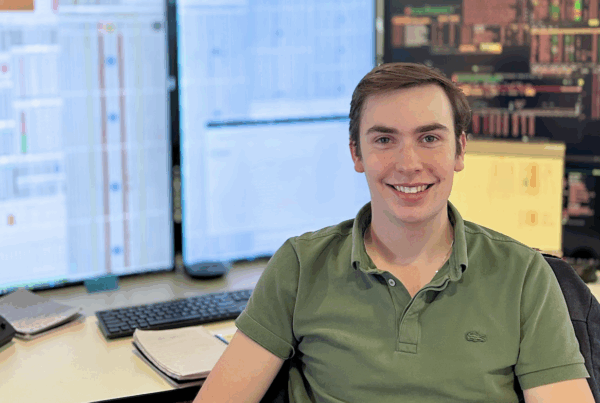
In this Q&A, we chat with Oliver, a former academic turned Quant Trader at VivCourt Trading. With a PhD spanning robotics, complex systems, and epidemic modelling, Oliver brings a unique lens to the world of algorithmic trading. He shares how his research background helped him transition into quant trading, what excites him most about the role, and advice for those looking to make a similar leap.
What is your role at VivCourt Trading? Can you explain what a Quant Trader does?
I am a quantitative trader, which means I use mathematical models and automated systems to make trades in financial markets. The algorithms we use to trade are data-driven and based on a range of signals, such as market trends and economic data.
Before coming to VivCourt, you were an academic… What did you do your PhD on? What other exciting research projects have you worked on?
As one of my PhD examiners correctly pointed out, my thesis was a “frenetic” blend of several subjects and ideas. Early in my research, I focused on robotic path planning and perception, where we found success in applications like locating endangered wildlife. During this time, I also became interested in how simple interactions between robots could yield fascinating dynamics, which led me to study the mathematics of complex systems.
In the latter part of my career, I focused on developing statistical models that captured communication between elements of complex dynamical systems, from the human brain to epidemics and financial markets. When the pandemic struck in early 2020, we adapted a model to study the effect of interventions (e.g. social distancing, lockdowns) and preventions (e.g. vaccinations) on the spread of COVID-19. Our work gained national and international media attention and spotlights in mainstream articles by the WHO and IEEE Spectrum.
Why did you choose a career in Quant Trading after working as an academic?
From my studies in complex systems, I developed a fascination with how financial markets operate to behave like a self-organising system. Much like how interactions between neurons give rise to complex thoughts and actions, market movements drive market dynamics that affect the global economy, such as share market bubbles and collapses. No other industry, or even area of trading, melds the excitement and uncertainty of the markets with the pragmatism of data-driven research.
How has this helped/transferred across to what you do now?
A major part of what we do as quant traders is to understand the relationships between individual assets: how, when, and why their long-term correlations develop or break down. Having spent much of my research career analysing how certain interactions yield certain dynamics, this type of research was very familiar to me. With my research foundation in robotics, I also became comfortable with real-time system automation and the rapid deployment of ideas or algorithms (including fixing code on the fly).
What sort of person do you believe succeeds in Trading?
In quantitative research, the ability to follow the data and have an open mind is critical. Financial markets are notoriously difficult to predict and can suddenly behave unruly, breaking all previous assumptions. It’s important to keep your head high when developing models and continue to push through barriers; I guess this could be defined as a stick-at-it-ness.
Another important factor is the ability to take on constructive criticism and continually grow by bouncing ideas off your team. Nothing is done alone, and an openness to discuss, iterate, and share ideas is key to success.
What do you love most about your work now?
Being in a smaller team, we are in charge of maintaining an incredibly complex automated trading system and developing research for future strategies and models. My favourite part of this setup is that we can split our time between long-term research projects (such as designing a new signal or strategy) and short-term tasks (such as optimising the code for efficiency). This gives us many little wins while rolling out a much larger and exciting algorithm change. The benefits at VivCourt are pretty great too…
One bit of advice for prospective interns/graduates?
The trading world combines legacy processes with fast-paced and modern technology. In quant research, in particular, we often take elegant mathematical theories and find ways to integrate these solutions into our systems and constraints practically. So, I encourage any prospective trader to join this world with an open mind and a willingness to understand how things came to be and then drill down to find inefficiencies. And always remember that there is a wealth of knowledge around you that people are always happy and willing to share.


